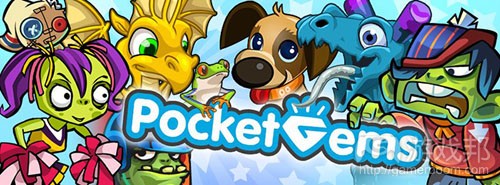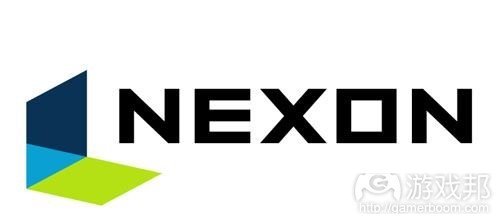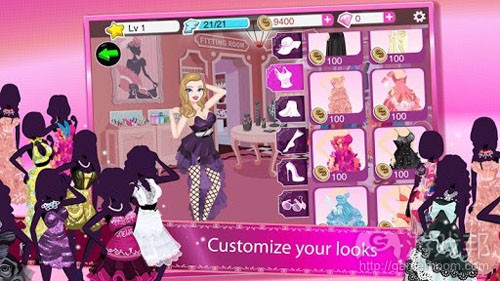每日观察:关注亚洲游戏收购交易及全球游戏产值(2.14)
1)据venturebeat报道,尽管多数手机游戏公司认为圣诞节是游戏下载量和访问率的高峰,因此该时期有许多人得到的圣诞礼物就是新款手机,但手机游戏开发商Pocket Gems最近调查则显示,2月14日情人节这天Pocket Gems用户在手机游戏中的投入时间超过了圣诞节,玩家在这天所投入的游戏时间比通常情况多9%,而圣诞节这天他们在游戏中投入的时间仅增长约2%。
针对这种现象的原因,Pocket Gems分析主管Michael Fedor表示,团队对此有两种解释,有些人认为有伴的玩家会在这天一起玩游戏,还有些悲观者则认为是单身玩家在此时将手机游戏作为一种排遣孤独的手段。
Pocket Gems在去年2月向《Campus Life》这款社交游戏植入一项新约会机制,并与情人节主题相绑定,受到了玩家的广泛欢迎。该工作室认为其他开发者也可以通过发布情人节内容,或创造与爱情、约会相关的任务而获益。
2)据gamasutra报道,任天堂日前宣布3DS Shop平台将面向西方市场发布两款免费游戏,《Steel Diver: Sub Wars》以及《Rusty’s Real Deal Baseball》,但这两者都不含“真正”的微交易元素。
《Steel Diver: Sub Wars》是一款第一人称射击游戏,玩家支付9.99美元就可以解琐付费版游戏。《Rusty’s Real Deal Baseball》则提供了一系列可供玩家解琐的迷你游戏,每个迷你游戏的售价为4美元,但玩家可以同游戏主角Rusty讨价还价,支付更低的价钱,该游戏将于今年4月发布。
3)据gamasutra报道,韩国网游巨头Nexon最近发布的2013年第四季度财报指出,公司收益为345亿韩元(3.38亿美元),同比增长12%,亏损为44亿韩元(4360万美元)。
Nexon将多数原因归结于与投资6waves公司相关的25亿韩元(2450万美元)亏损,Nexon整个2013财年的收益为1553亿韩元(15亿美元),同比上年增长43%,利润为301亿韩元(2.954亿美元),同比增长7%。
除此之外,该公司还宣布从3月25日开始,原首席执行官Seungwoo Choi将下台,由Owen Mahoney担任新总裁和CEO。
Mahoney在2010年加入Nexon,拥有15年左右的游戏行业背景。该公司指出,由于Mahoney出色的财政领导,公司年收益增长了123%,并完成了在东京证券交易所的IPO。
Nexon会计总经理Shrio Uemura则将接任公司的首席财务官一职。
4)据venturebeat报道,收购顾问公司Corum Group最近数据显示,亚洲再次成为游戏行业收购的领军力量,在全球游戏行业的前十大收购交易案中,有9个买家来自亚洲。
2013年游戏行业所有交易总值增长29%,达到56亿美元,而投资数额仍然保持在30亿美元左右。
由于大型科技市场发展,游戏并购市场在2013年迅速发展。2013年科技公司的身份也水涨船高,该领域前十大公司买家都含有不少游戏交易。雅虎在该时期完成了30笔收购交易,苹果和Facebook分别收购了11家公司,这两者至少都有一项收购与游戏有关。
其中最引人注目的交易包括,Bally Technologies以13亿美元收购Shuffle Master,进军在线赌博市场。Scientific Games以15亿美元收购WMS,而软银则以15亿美元收购Supercell公司51%的股份。
该时间游戏行业的15项IPO中,有13者来自亚洲。而2014年可能进行IPO的公司则包括King、Kabam、Line以及Rovio。但这些公司都有可能找到理由推迟IPO。
5)据pocketgamer报道,手机游戏发行商及开发商Animoca(成立于2011年1月,位于香港)日前宣布其应用下载量突破2.2亿次。该公司至今已发布300款游戏,最近专注于开发女性游戏,并在情人节之前向Google Play和亚马逊Appstore发布了约会模拟游戏《Star Girl: Valentine Hearts》。
6)市场调研公司DFC Intelligence最新报告预测,全球游戏行业产值将从2013年的680亿美元增长至2018年时的960亿美元(游戏邦注:DFC此次更新了之前所称的2018年游戏产值为820亿美元这一预测)。
DFC指出Xbox One和PS 4销量将分别突破1亿台,PC游戏和手机游戏仍将稳定发展,PC游戏市场2014年产值将达260亿美元。(本文为游戏邦/gamerboom.com编译,拒绝任何不保留版权的转载,如需转载请联系:游戏邦)
1)Valentine’s Day is potentially bigger than Christmas for mobile gaming
Jeffrey Grubb
Many gamers are spending Valentine’s Day with their true loves: their smartphones.
It looks like Feb. 14 is the new king of mobile-gaming holidays. Consumers are spending more time with mobile games on Valentine’s Day than they do on Christmas, according to Animal Voyage and Campus Life developer Pocket Gems. The studio found that fans played around 9 percent more than the average on Feb. 14. That’s compared to Christmas, which was up only around 2 percent.
The company provided the following chart that shows engagement from November through February of 2013:
Pocket Gem’s reveals engagement across several major holidays.
Holidays are traditionally big events for the mobile-gaming industry, but most publishers assume that Christmas is the time to strike. People get new devices during that gift-giving holiday, and that encourages gamers to hop on the Apple App Store or Google Play to find something to play.
“People are coming back more times on Valentine’s Day,” Pocket Gems head of analytics Michael Fedor told GamesBeat. “That’s a critical metric in the measurement of engagement.”
Fedor says that the team at Pocket Gems is split on explaining this trend. Some think that it’s couples playing games together. Others more pessimistically believe this is a sign that single gamers turn to their mobile games as a way to shut out all that gooey romance crap when they’re alone.
“It’s funny because it’s open to interpretation,” said Fedor. “It gives you insight into the person interpreting the data.”
Regardless of why people play more on Valentine’s Day, Pocket Gems is looking to capitalize. Last year, the company introduced a new dating mechanic in its Campus Life social-life simulator in February. This tied in with with the holiday, and it was was very popular with gamers.
The studio thinks other developers could benefit from this as well by releasing Valentine’s Day content or creating quests that incorporates love and dating.(source:venturebeat)
2)Nintendo begins to experiment with free-to-play in the West
By Christian Nutt
Today, Nintendo announced that it is releasing two free-to-play games to its 3DS eShop service: Steel Diver: Sub Wars and Rusty’s Real Deal Baseball.
Steel Diver: Sub Wars is a submarine-based first person shooter, and it’s more of a hobbled, unlimited-time demo than a true free-to-play game — paying $9.99 will unlock the “premium” version of the game. It is available now.
Rusty’s Real Deal Baseball, meanwhile, offers a slate of minigames players can unlock by spending real currency in-game. They start at $4 a game, but players can haggle with the game’s protagonist, Rusty, to pay a lower cash price if they choose. Gamasutra posted a story about the Japanese version of this game last year which contains more details. The game will launch in the West this April.
Neither game features “real” microtransactions, with Steel Diver: Sub Wars particularly far from the standard set by smartphone games and PC MMOs.(source:gamasutra)
3)Nexon gets a new CEO, records increased full year profits
By Mike Rose
Despite attaining large-scale losses in its fourth quarter, free-to-play game company Nexon still managed to achieve improved revenues and profits year-over-year.
For the fourth quarter ended December 31, 2013, the company recorded revenues of 34.5 billion yen ($338.0 million), up 12 percent year-over-year, and losses of 4.4 billion yen ($43.6 million), compared to profits of 552 million yen ($5.4 million) year-over-year.
Nexon put much of this down to a 2.5 billion yen ($24.5 million) impairment loss related to 6waves Inc, the company which Nexon made a strategic investment in back in 2011. 6waves later laid off all the development staff to focus on game publishing.
Regardless, the company still saw notable earnings for the full year, in part thanks to the success of titles like Dungeon&Fighter and FIFA Online 3. The company is still seeing much of its biggest growth in Korea, where fourth quarter revenues were up 65 percent year-over-year.
For the full fiscal year, Nexon recorded revenues of 155.3 billion ($1.5 billion), up 43 percent year-over-year, and profits of 30.1 billion yen ($295.4 million), up 7 percent year-over-year.
Change of CEO
The company also took the opportunity to name its new president and CEO. On March 25, 2014, current CEO Seungwoo Choi will step down, and Owen Mahoney will take the reins.
Mahoney has been Nexon’s CFO since 2010, and has worked in the games industry for around 15 years. The company noted that, under his financial leadership, Nexon has increased its annual revenues by 123 percent, and completed its $1.2 billion IPO on the Tokyo Stock Exchange.
Nexon’s general manager of accounting Shrio Uemura will take over as CFO.(source:gamasutra)
4)Asian companies account for nine of the top 10 game mergers and acquisitions
Dean Takahashi
Disclosure: The Dutch government paid my way to Amsterdam, where I moderated a session. Our coverage remains objective.
AMSTERDAM — Asia once again topped the list of the top acquirers of game companies. Nine of the top 10 deals in the game industry involved Asian acquirers, according to research by the Corum Group, an acquisitions advisory firm.
Last year, eight of the top 10 deals involved Asian firms as online gaming and an enthusiasm for mobile games spurred Asian game companies to grow faster than the rate of the overall market and spin off more cash for acquisitions. The value of all game deals rose 29 percent in 2013 to $5.6 billion while investment volume remained healthy at about $3 billion. Corum Group senior analyst Alina Soltys disclosed the data in a talk at the Casual Connect Europe game conference in Amsterdam.
The game merger and acquisition market grew during 2013 just as the larger tech market improved. Valuations for tech companies were up in 2013, and the top 10 acquirers of companies had numerous game deals. Yahoo was the most acquisitive with 30 acquisitions, including three game deals. Google was second with 26 deals, including one game deal. Apple and Facebook each acquired 11 companies, with at least one game deal each. Those deals reflect the growing value of gaming to the revenues of big tech companies, said Soltys.
Jim Perkins of the Corum Group said that 60 percent of acquisitions are now cross-border deals as big companies try to expand their geographic reach to new regions and move to consolidate markets. Overall, the game market is expected to increase from $70 billion to $100 billion by 2017, according to estimates by entertainment investment bank Digi-Capital.
Among the significant deals: Bally Technologies bought Shuffle Master for $1.3 billion to expand in online gambling. Scientific Games also bought WMS for $1.5 billion while SoftBank bought half of Clash of Clans maker Supercell for $1.5 billion. As we learned yesterday, that amounted to a valuation of about three times sales. Such a valuation isn’t considered crazy even though Supercell had only two games and 130 employees at the time.
Some of the deals reflected new shifts in power. India’s Reliance Entertainment bought game companies in Japan and Korea. Gamevil bought South Korean rival Com2Us and Nine Wheels. China’s Linekong raised $80 million. And mobile messaging networks KakaoTalk, WeChat, and Line are growing by hundreds of millions of users, many who download and play games on the mobile network.
That has hurt companies like Japan’s DeNA, Soltys said. Thirteen of the top 20 games are now on these mobile messaging networks.
It’s no surprise that 13 of 15 gaming initial public offerings happened in Asia. Of the possible IPOs of 2014, the big ones could be King, Kabam, mobile messaging network Line, and Angry Birds maker Rovio. But each one of those has some reason to delay an IPO as well, Soltys said.(source:venturebeat)
5)Girl power: Animoca passes 220 million app installs
by Matthew Diener
2014 is already shaping up to be a good year for publisher and developer Animoca, which has just announced that it’s passed the 220 million mark for total app installs.
A wholly-owned subsidiary of Hong Kong-based Outblaze, Animoca, which has released 300 games – has recently focused its efforts on catering to female gamers – a demographic which it argues is overlooked by much of the industry.
The latest example of this catering is Animoca’s Star Girl: Valentine Hearts, a decidedly female-focused free-to-play dating simulator was launched ahead of the holiday on Google Play and the Amazon App Store.
Hear me roar
Speaking on the 220 million install threshold, Animoca’s co-founder and CEO David Kim stressed that – while proud – he’s already looking forward to launching more games before the winter’s up.
“I’m proud of our team’s commitment to producing high quality games and creating original, innovative mobile experiences,”
“The new Animoca games launched so far this year are just a sign of things to come as we prepare to announce several more exciting new launches in the coming weeks.”
Animoca was formed in January 2011, and received a strategic minority investment from Chinese webgame outfit Forgame in May 2013.(source:pocketgamer)
6)New consoles will drive global game business to $96 billion by 2018
Dean Takahashi
The global game industry is expected to grow from $68 billion in 2013 to $96 billion in 2018, according to a significantly upgraded forecast by market researcher DFC Intelligence.
The five-year forecast has been upgraded from past estimates thanks to the strong performance of the market — including the launch of Grand Theft Auto V and the new consoles from Sony and Microsoft — in late 2013. DFC said both the Xbox One and the PlayStation 4 will eventually sell more than 100 million units each. Previously, DFC predicted the game business would hit only $82 billion by 2018.
The forecast includes revenue from PC games, console games, and mobile games. It also includes hardware spending on dedicated game devices.
“DFC has always tended to be conservative in its forecasts,” says DFC analyst David Cole. “Last year we were concerned about competition from the enormous amount of free to play content and the growth of mobile. The poor reception for the Wii U was also a major area of concern.”
According to Cole, the last few months of 2013 had some major positive signs for future industry growth.
“There was concern that the core game consumer was losing interest in the market,” he said. “The huge success of Grand Theft Auto V and the successful launches of the PlayStation 4 and Xbox One showed this was clearly not the case.”
In addition, the PC game and mobile game market are expected to grow at a steady pace. The worldwide PC games market is expected to reach $26 billion in 2014 after a slow year last year in North America and Europe.(source:venturebeat)











































 闽公网安备35020302001549号
闽公网安备35020302001549号